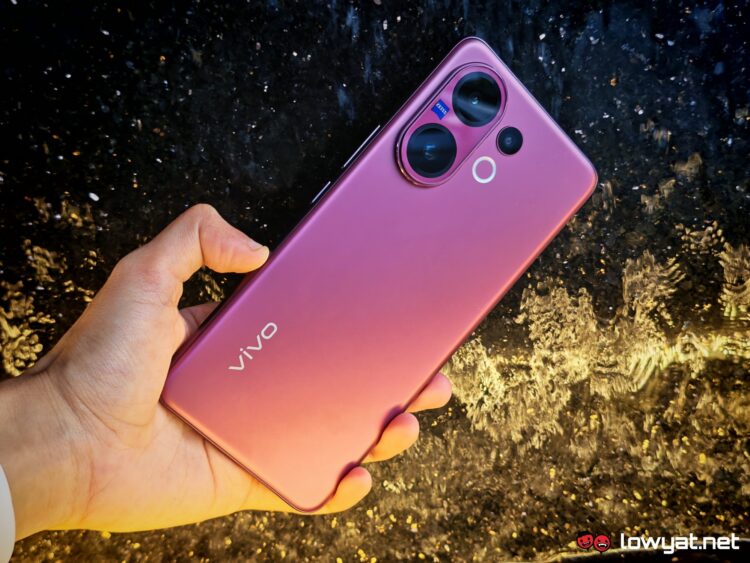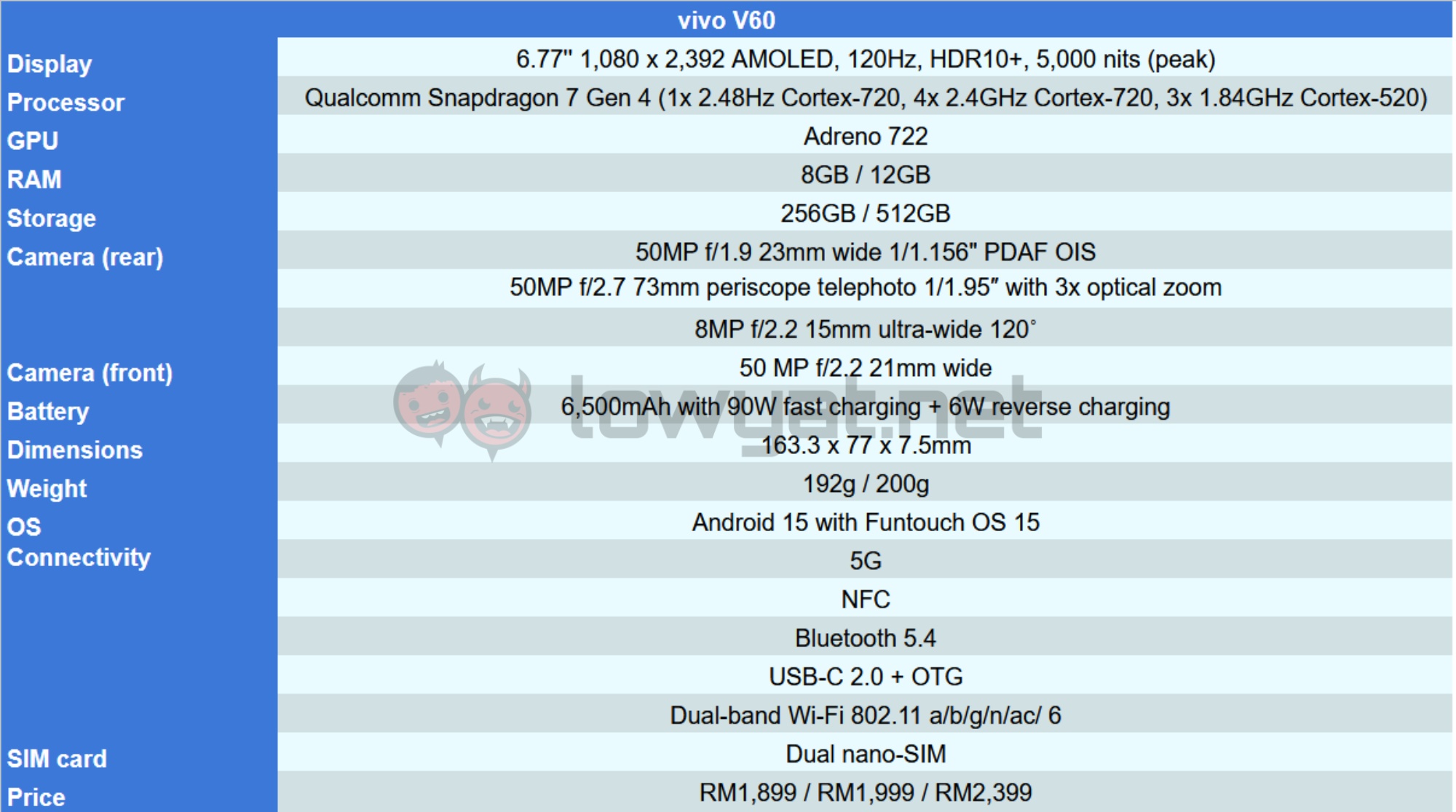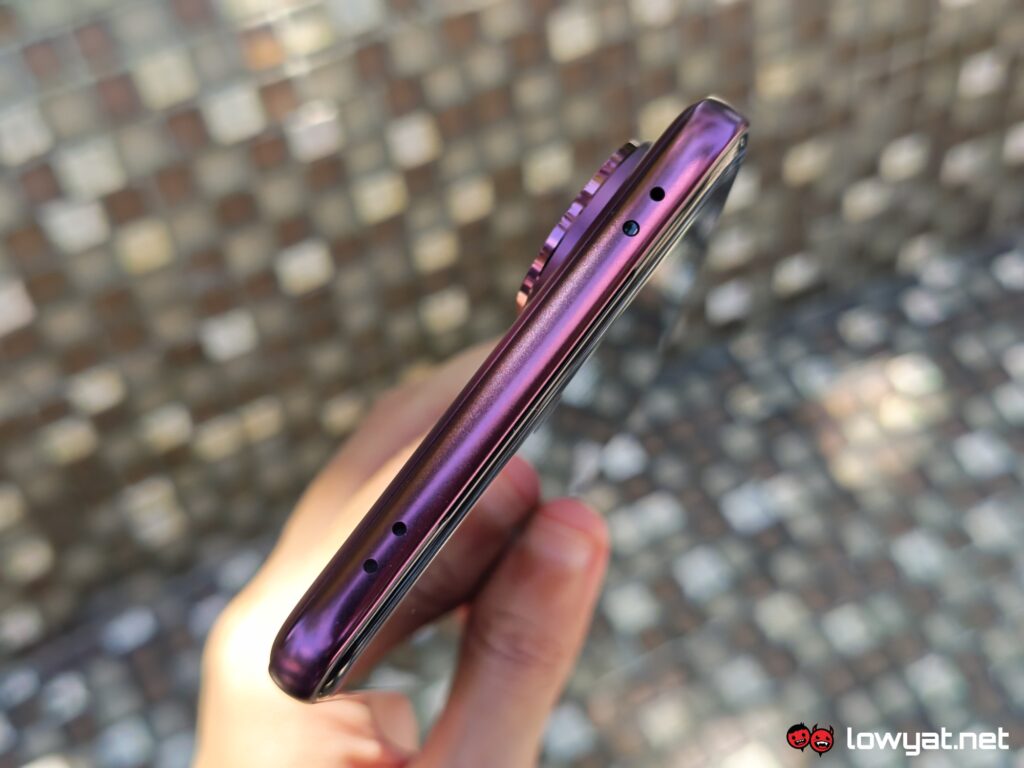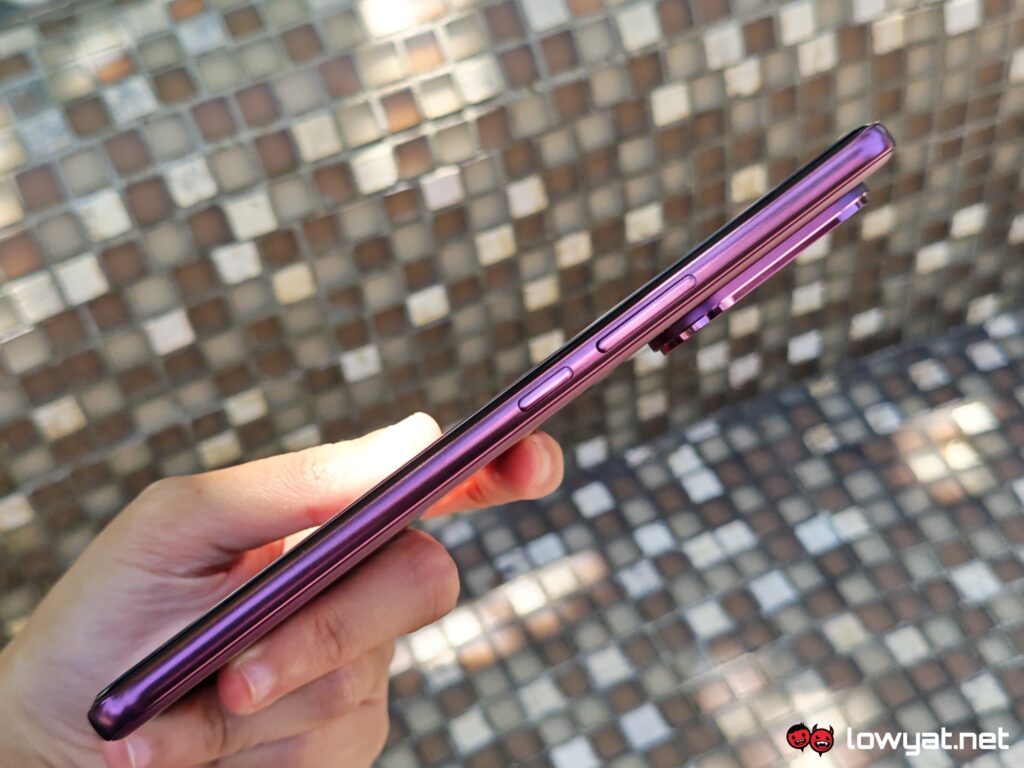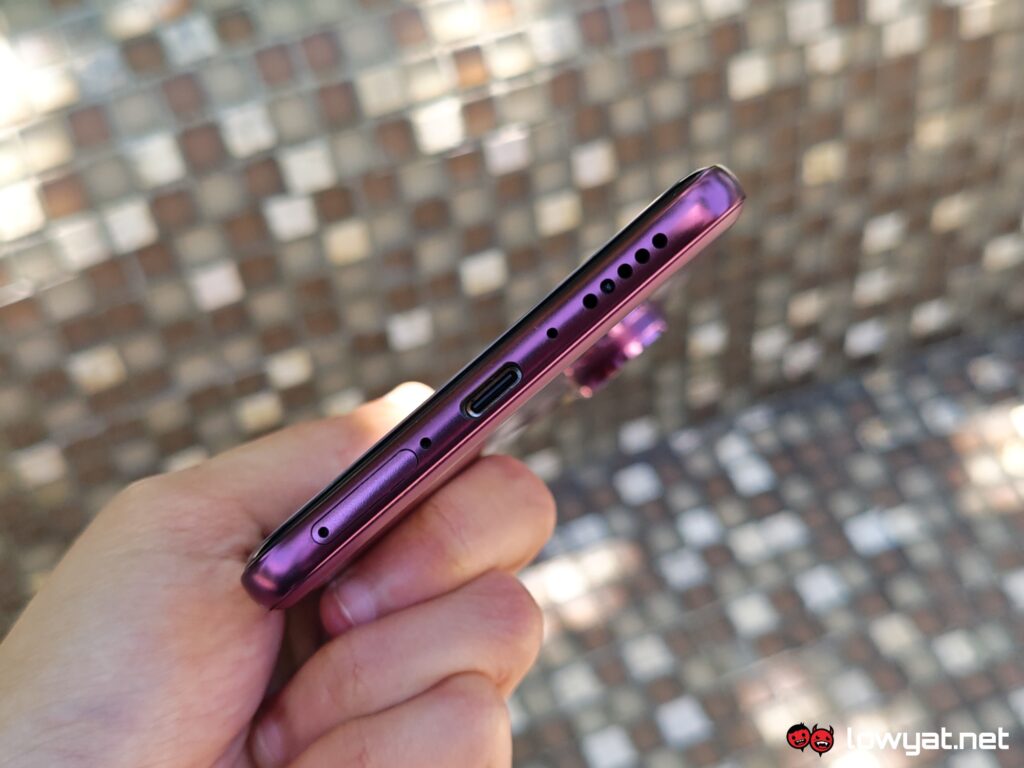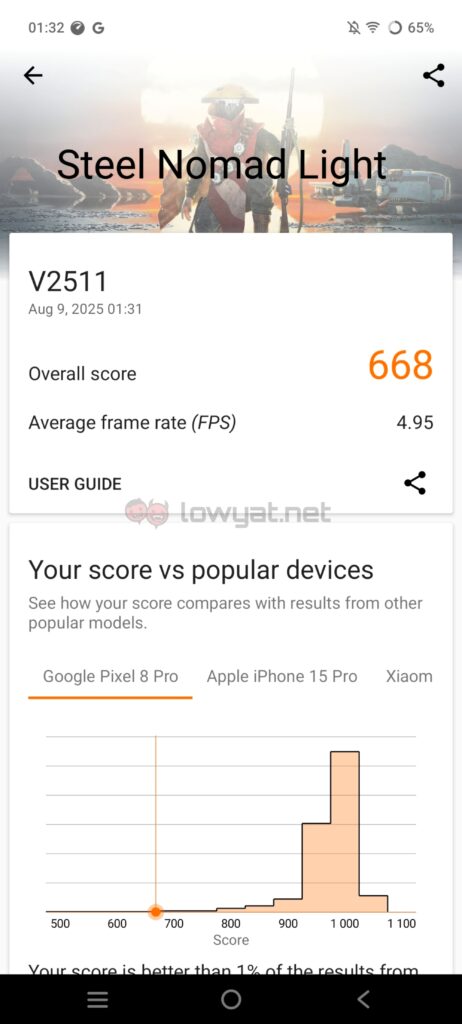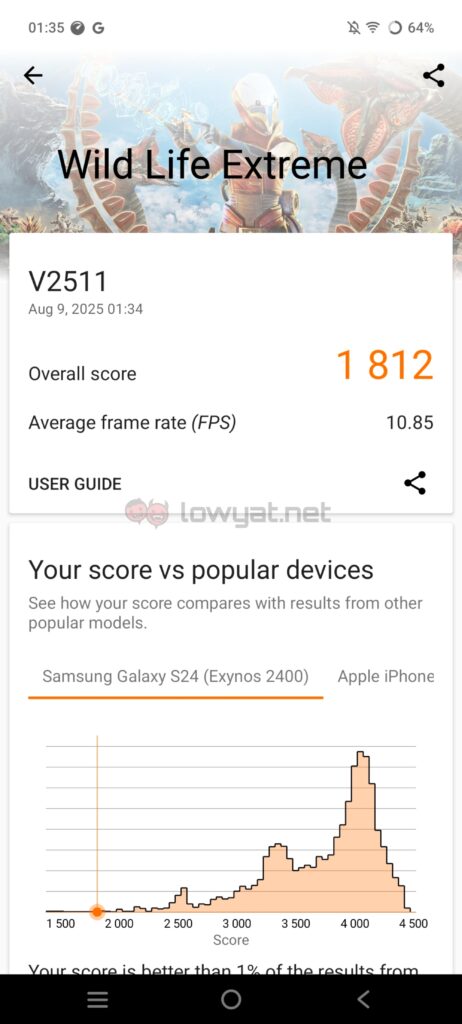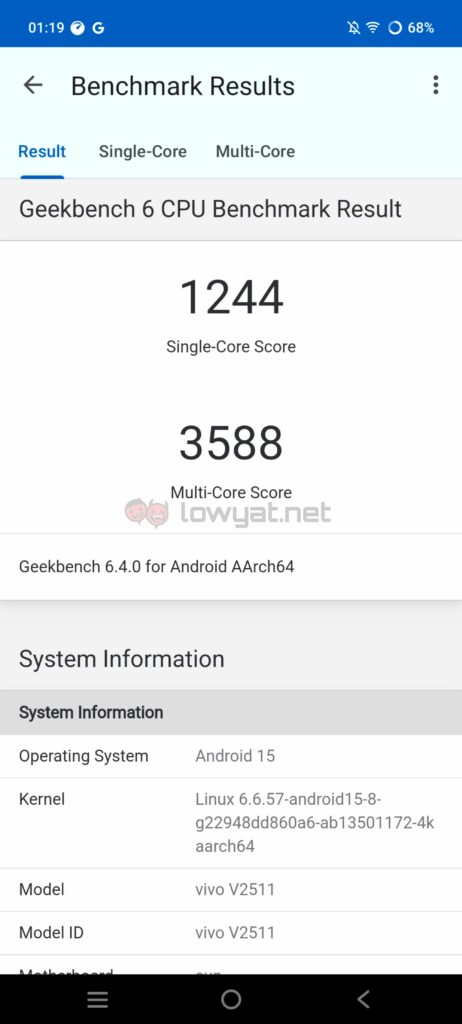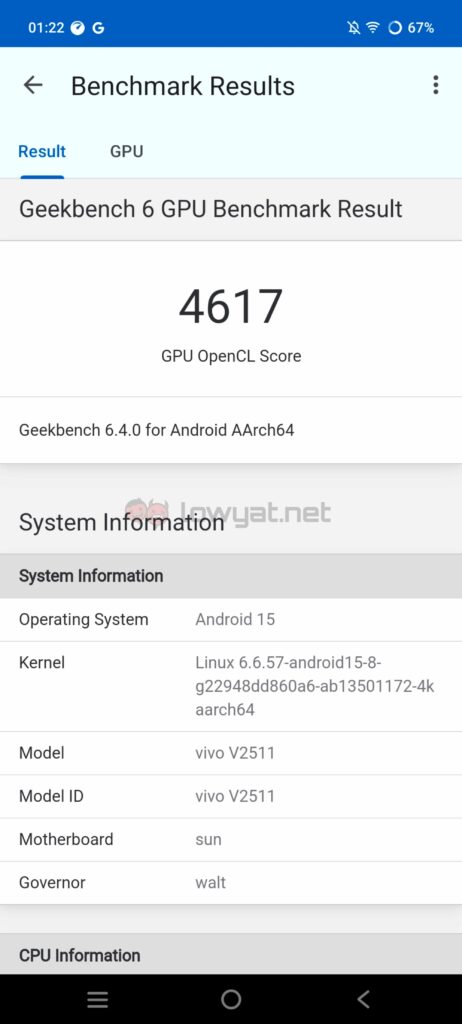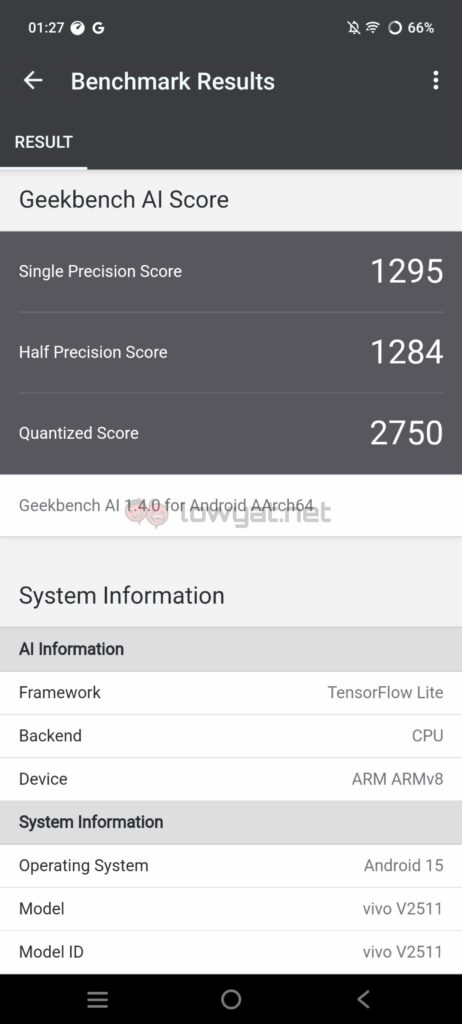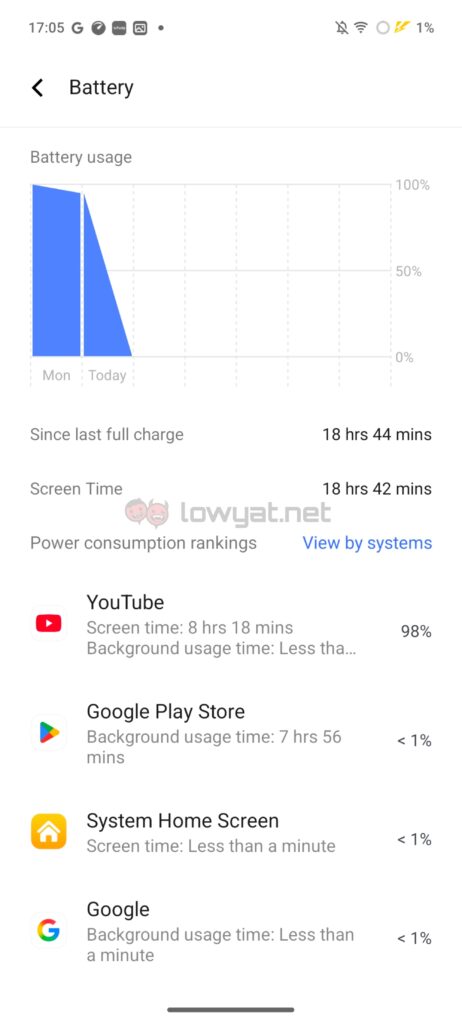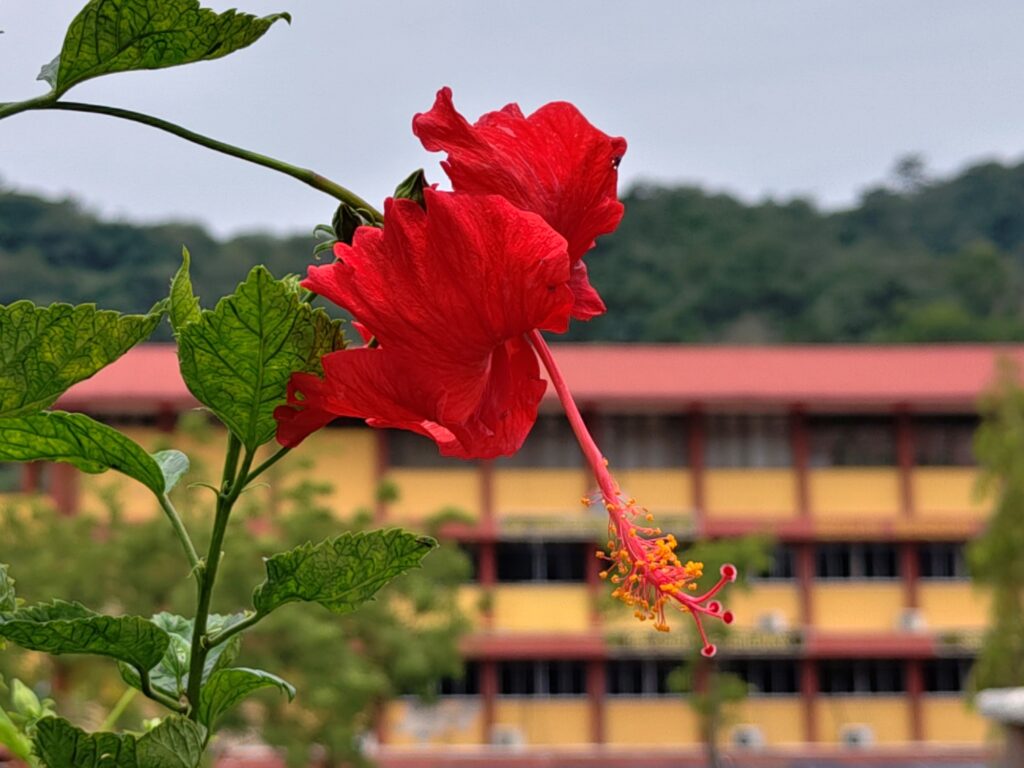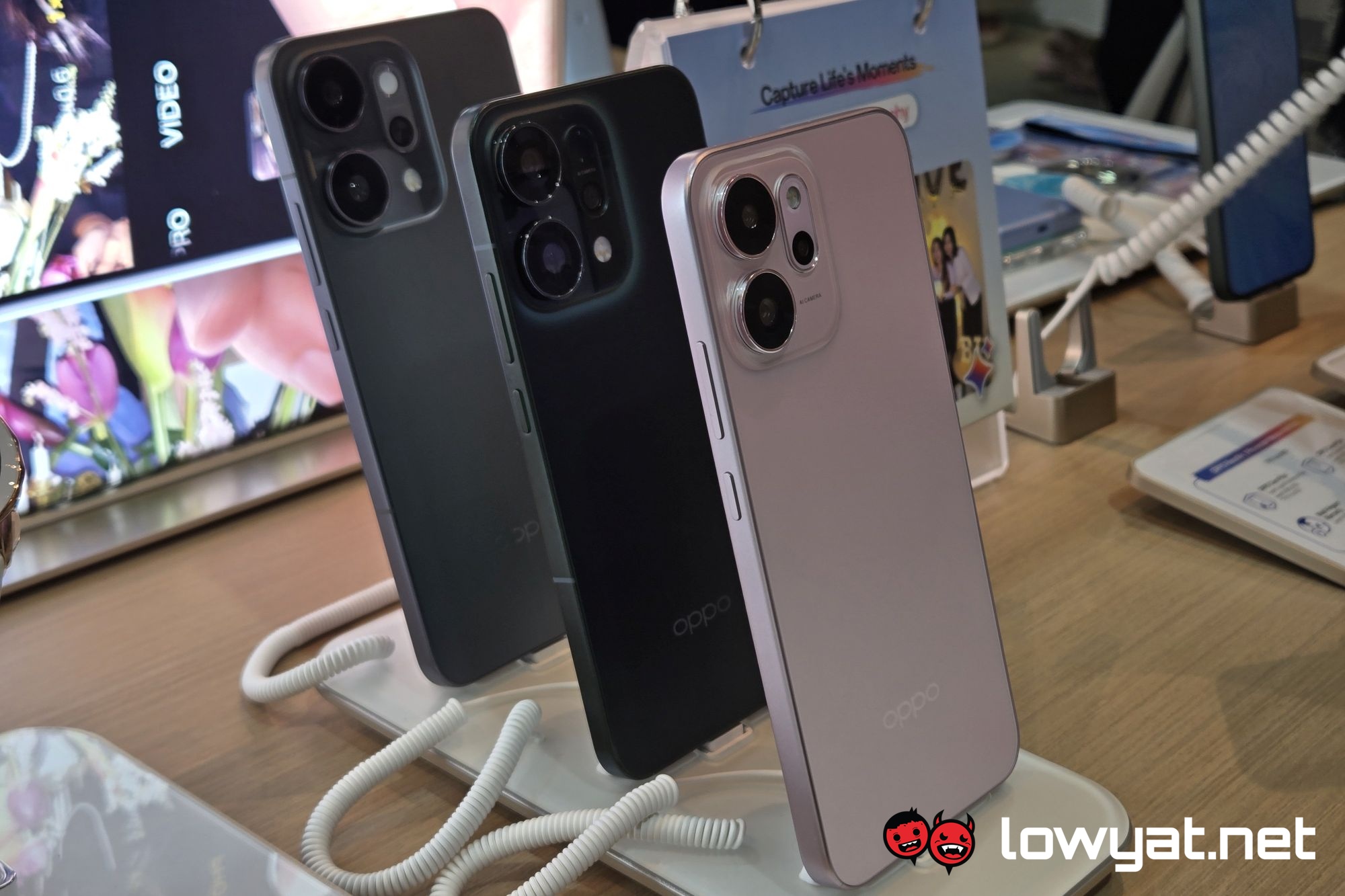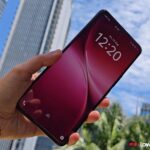The vivo V series is a midrange lineup that gets a frequent refresh, and it’s about time for another member of the family to make its debut. The brand recently launched the V60 as the successor to the V50, with the model in a particularly purple pigment taking centre stage.
If you’re well-acquainted with the previous generations of this series, then the vivo V60 feels fairly familiar. Just with some notable upgrades in the chipset and camera department.
Specifications
Looks and Functionality
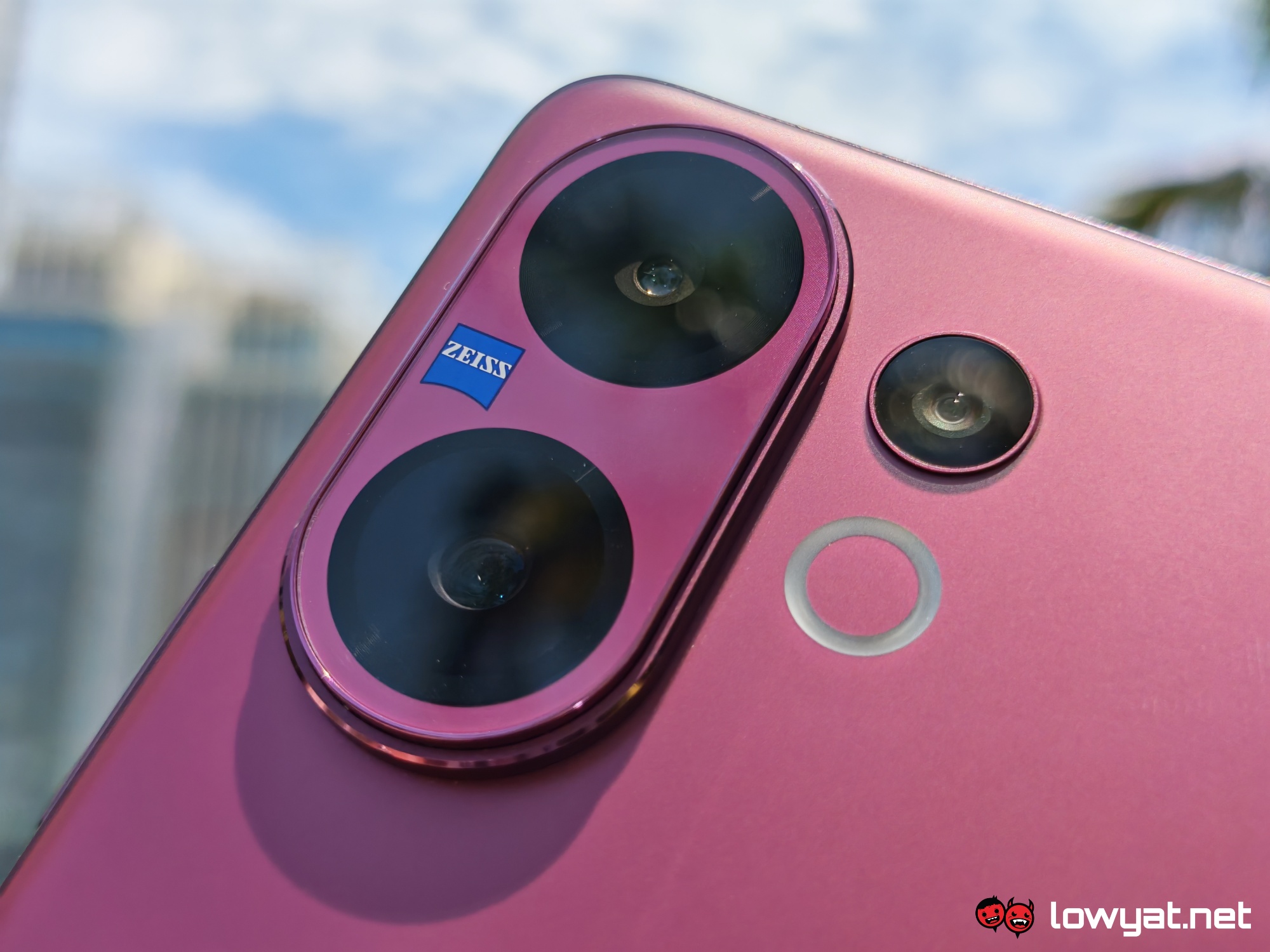 The V60 looks and feels a lot like its predecessor, but with one obvious difference. vivo has redesigned the camera module, so it more closely resembles the X200 FE. Basically, the brand has opted for a pill-shaped camera island to house the phone’s main and telephoto sensors. The wide-angle lens and signature Aura Light sit just outside this bump. The end result is a setup that looks more compact and is less obtrusive, even though the device sports one more sensor.
The V60 looks and feels a lot like its predecessor, but with one obvious difference. vivo has redesigned the camera module, so it more closely resembles the X200 FE. Basically, the brand has opted for a pill-shaped camera island to house the phone’s main and telephoto sensors. The wide-angle lens and signature Aura Light sit just outside this bump. The end result is a setup that looks more compact and is less obtrusive, even though the device sports one more sensor.
Beyond the revamped camera island, there isn’t much that sets this phone apart. Like the V50, it sports a slim frame with curved sides, which make it comfortable to hold and handle. The display is also slightly curved at the edges where the bezels start. As far as its design goes, it comes with the same perks and pitfalls as its older sibling.
vivo’s favoured hue for this model is Berry Purple, which is a shade reminiscent of a glass of wine. It’s a luxurious colour that gives the device an elegant, classy vibe and somewhat resembles last generation’s Ancora Red. And like the V50, the sides of the phone are shinier than the rear. However, the shine is less pronounced, so it’s not as jarring to look at.
The company also claims that the V60 has the most drop-resistant screen out of all its V series smartphones. This is not something I went out of my way to test out, but it’s worth a mention in case you’re the type to forego a case. Still, I would recommend being mindful with the device, lest you scratch that pretty purple paint.
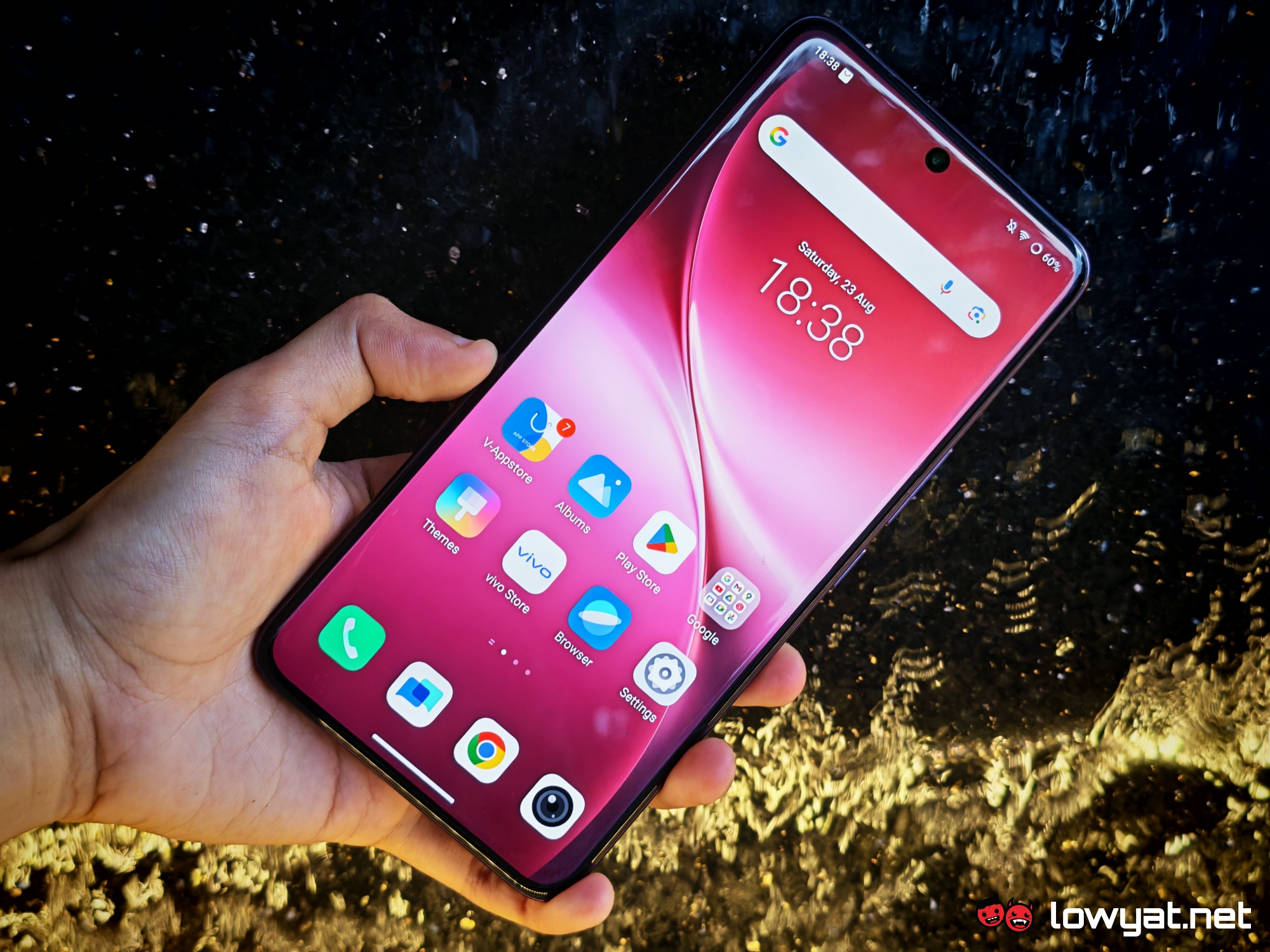 The phone runs Android 15 via the brand’s FunTouch OS 15 skin. Unsurprisingly, it comes with its share of bloatware. Granted, vivo is not the only brand that does this, but its apps do behave like an insecure ex-girlfriend with how often they like to remind you that they exist. V-Appstore still insists on incessantly sending notifications, so the first order of business is to hop into the settings and silence the bugger if you want peace.
The phone runs Android 15 via the brand’s FunTouch OS 15 skin. Unsurprisingly, it comes with its share of bloatware. Granted, vivo is not the only brand that does this, but its apps do behave like an insecure ex-girlfriend with how often they like to remind you that they exist. V-Appstore still insists on incessantly sending notifications, so the first order of business is to hop into the settings and silence the bugger if you want peace.
Performance and Battery
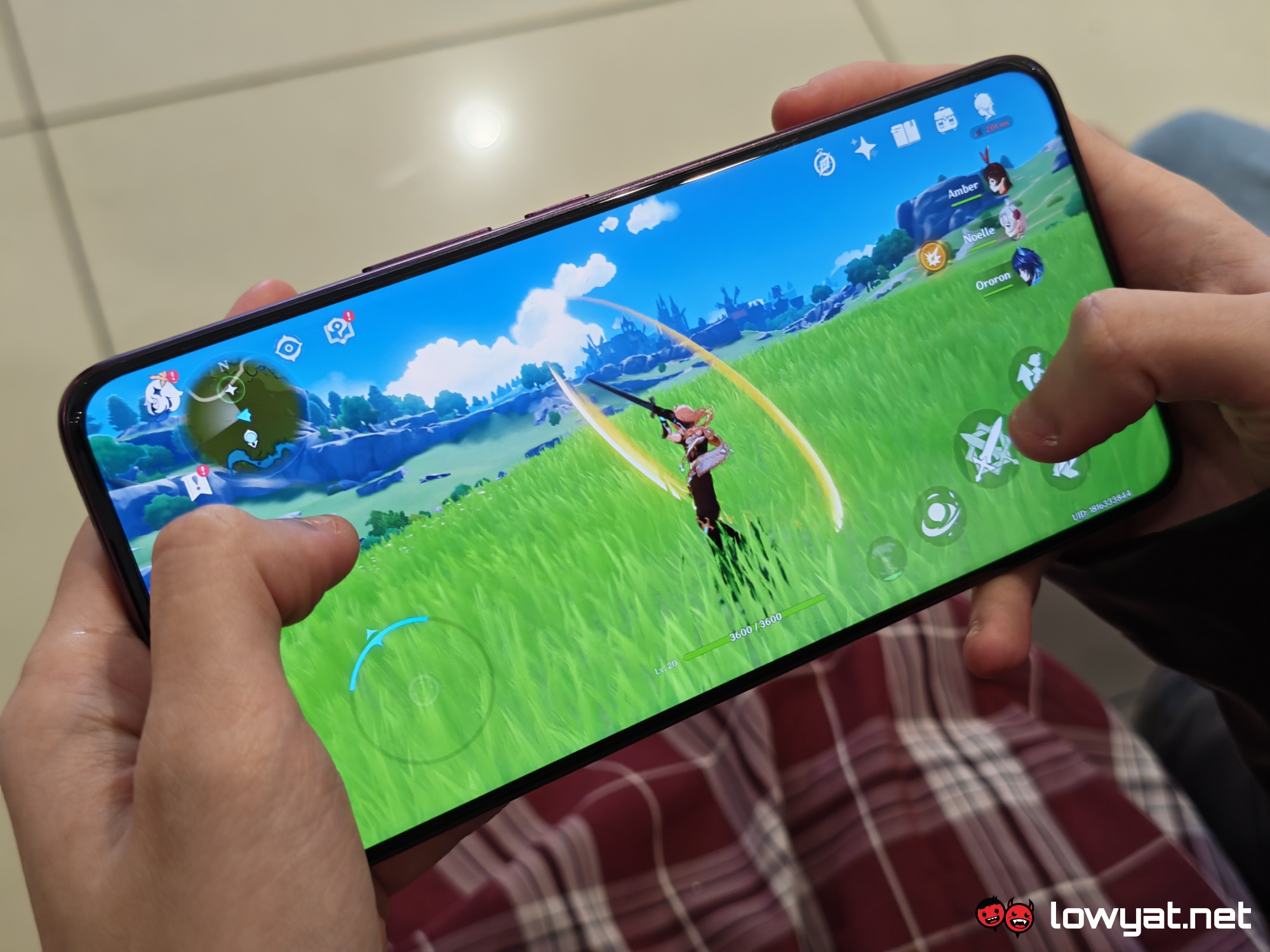 The vivo V60 runs on a Qualcomm Snapdragon 7 Gen 4 chipset, which is without a doubt an upgrade from the preceding model. The benchmark scores certainly show this. In practice, the phone offers a smooth and snappy day-to-day experience. You certainly won’t run into any lagging or stuttering unless you’re opening way too many apps or putting the phone through intensive tasks like gaming for hours on end.
The vivo V60 runs on a Qualcomm Snapdragon 7 Gen 4 chipset, which is without a doubt an upgrade from the preceding model. The benchmark scores certainly show this. In practice, the phone offers a smooth and snappy day-to-day experience. You certainly won’t run into any lagging or stuttering unless you’re opening way too many apps or putting the phone through intensive tasks like gaming for hours on end.
Speaking of which, you can get away with playing games like Genshin Impact and Wuthering Waves with the graphics settings turned up to eleven, but only in short bursts of around 30 minutes or so. Longer than that and you’ll start to experience some choppiness. The phone also gets fairly warm, but not more than one would typically expect from your average midrange phone.
In terms of battery life, the 6,500mAh capacity is definitely enough to last just under two days with moderate use. As for the video streaming test, it lasted about 19 hours. Charging the phone takes just a little over an hour with the brick that comes in the box.
Camera
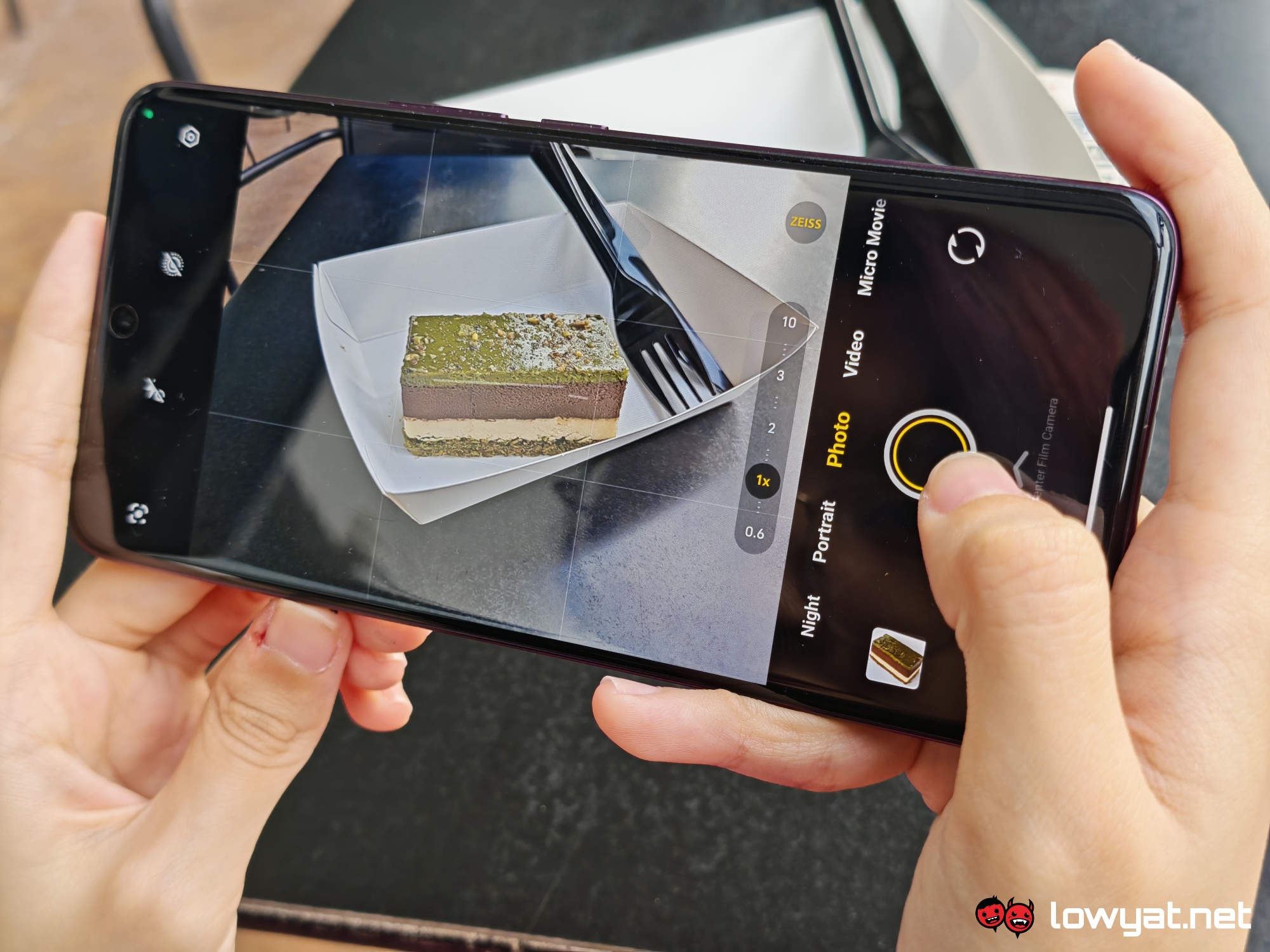 As mentioned earlier, vivo has made some changes to the camera setup for this device. This redesign is more than just a cosmetic one, as the V60 features three sensors on the rear – a 50MP main, a 50MP telephoto, and an 8MP ultrawide. Meanwhile, the front of the phone sports a 50MP shooter. Of course, these are all still powered by ZEISS as part of the longstanding partnership between the two.
As mentioned earlier, vivo has made some changes to the camera setup for this device. This redesign is more than just a cosmetic one, as the V60 features three sensors on the rear – a 50MP main, a 50MP telephoto, and an 8MP ultrawide. Meanwhile, the front of the phone sports a 50MP shooter. Of course, these are all still powered by ZEISS as part of the longstanding partnership between the two.
The 50MP telephoto camera is a new addition to the party, and it comes with 3x optical zoom. There’s also an AI-assisted zoom that goes all the way up to 100x, but it’s something that only sounds good in theory. It’s not a feature that would see much use to begin with, and it’s heavily reliant on the AI to fill in the details.
The highlight of the V60’s imaging system is, of course, the portrait mode. You have a selection of five different focal lengths, as well as a variety of ZEISS bokeh effects for the quintessential Instagram-worthy shot. Pictures taken with this mode are striking and eye-catching, with the all of the subject’s imperfections scrubbed away.
The vivo V60 also introduces the AI Four-Season Portrait. As the name suggests, it’s another feature that relies on AI. Essentially, it edits the picture background based on your choice of either Spring, Summer, Autumn, or Winter. For instance, picking the Winter option adds snow to the background. Selecting Spring will transform any foliage into cherry blossoms. Or at least, the AI will try to do so.
And as with any modern smartphone, the V60 packs some AI-powered editing tools. You have your usual fare of AI Erase and AI Enhance, plus some extras like AI Magic Move and AI Image Expander. The former lets you move a subject in the photo, while the latter generates an extended area around the original picture. Both of these sound great on paper, especially when you need to adjust the composition of the photo.
As for how it actually works in reality, I’d say it’s convincing enough if you don’t look too closely. The AI does best when the original image has few details. It struggles to replicate patterns and textures accurately, so it’s pretty obvious where the original image ends.
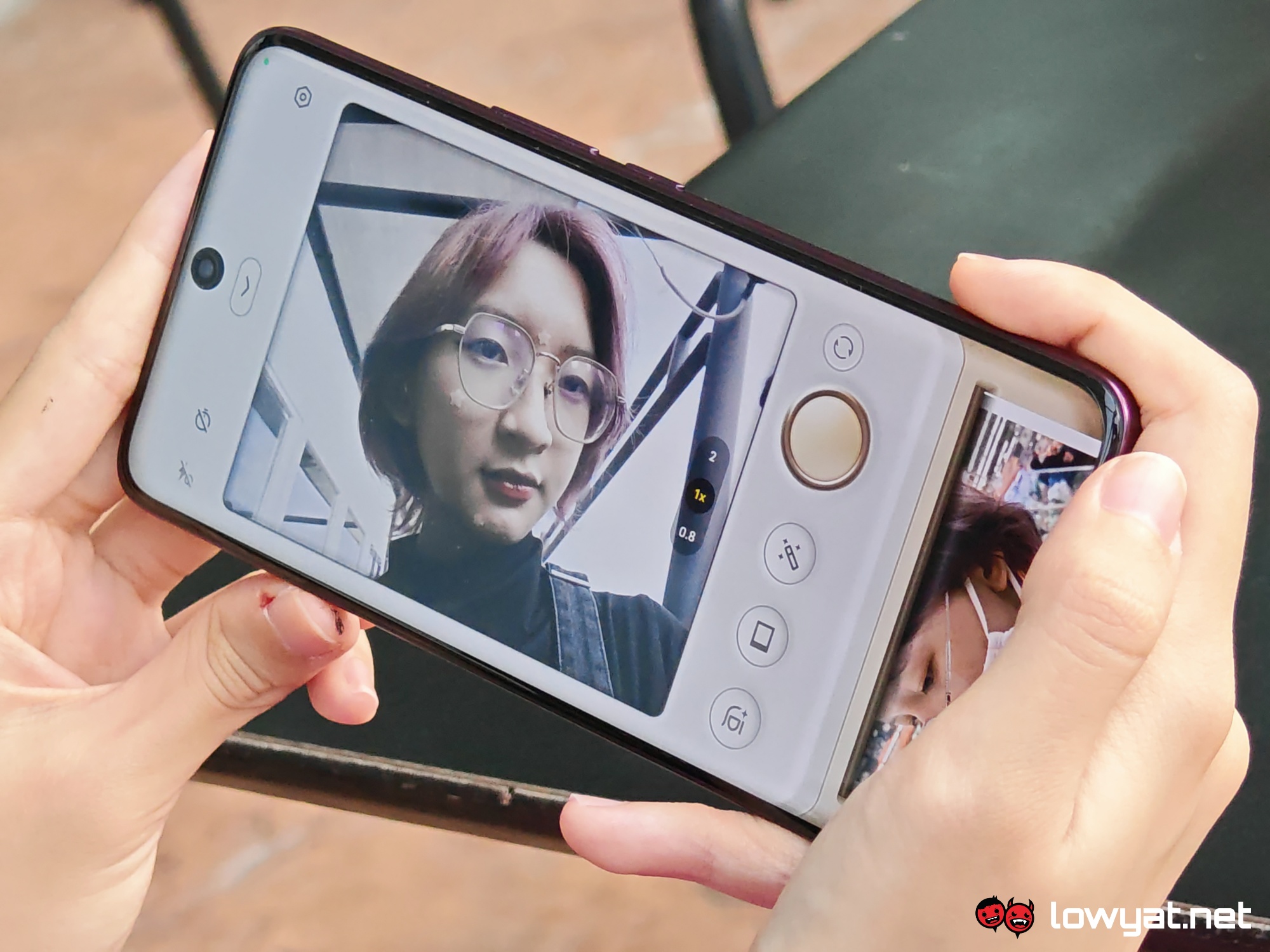 The camera has one more noteworthy feature, which is the Film Camera mode. It’s a quirky little interface that mimics a Polaroid camera. This mode also comes with a selection of filters to further capture the nostalgic vibe.
The camera has one more noteworthy feature, which is the Film Camera mode. It’s a quirky little interface that mimics a Polaroid camera. This mode also comes with a selection of filters to further capture the nostalgic vibe.
Camera Samples
Competition
OPPO Reno14
The OPPO Reno14 was launched back in July as part of the Reno14 lineup. Specs-wise, it features a 6.59-inch 1,256 x 2,760 AMOLED display with a 120Hz refresh rate and a peak brightness of 1,200 nits. Internally, it runs on a MediaTek Dimensity 8350 chip, paired with 12GB of RAM and up to 512GB of storage. Additionally, it packs a 6,000 mAh battery with 80W charging.
For cameras, it sports a triple setup consisting of a 50MP main shooter, an 8MP wide-angle sensor, and a 50MP telephoto lens. Meanwhile, the front is equipped with a 50MP selfie snapper. The phone has a slightly higher starting price of RM2,199.
POCO F7

The POCO F7 sports a 6.83-inch 1.5K AMOLED screen with a 120Hz refresh rate and peak brightness of 3,200 nits. Under the hood, it is equipped with a Qualcomm Snapdragon 8S Gen 4 chipset, paired with 12GB of RAM. For storage, you have your choice of either 256GB or 512GB of storage. Moreover, it comes with a 6,500mAh battery with support for 90W fast charging and 22.5W reverse charging.
On the imaging side, it features a 50MP main camera and an 8MP ultra-wide lens on the rear. For the selfie enthusiasts, the front camera is a 20MP shooter. As for pricing, the cheapest model will set you back RM 1,799.
Conclusion
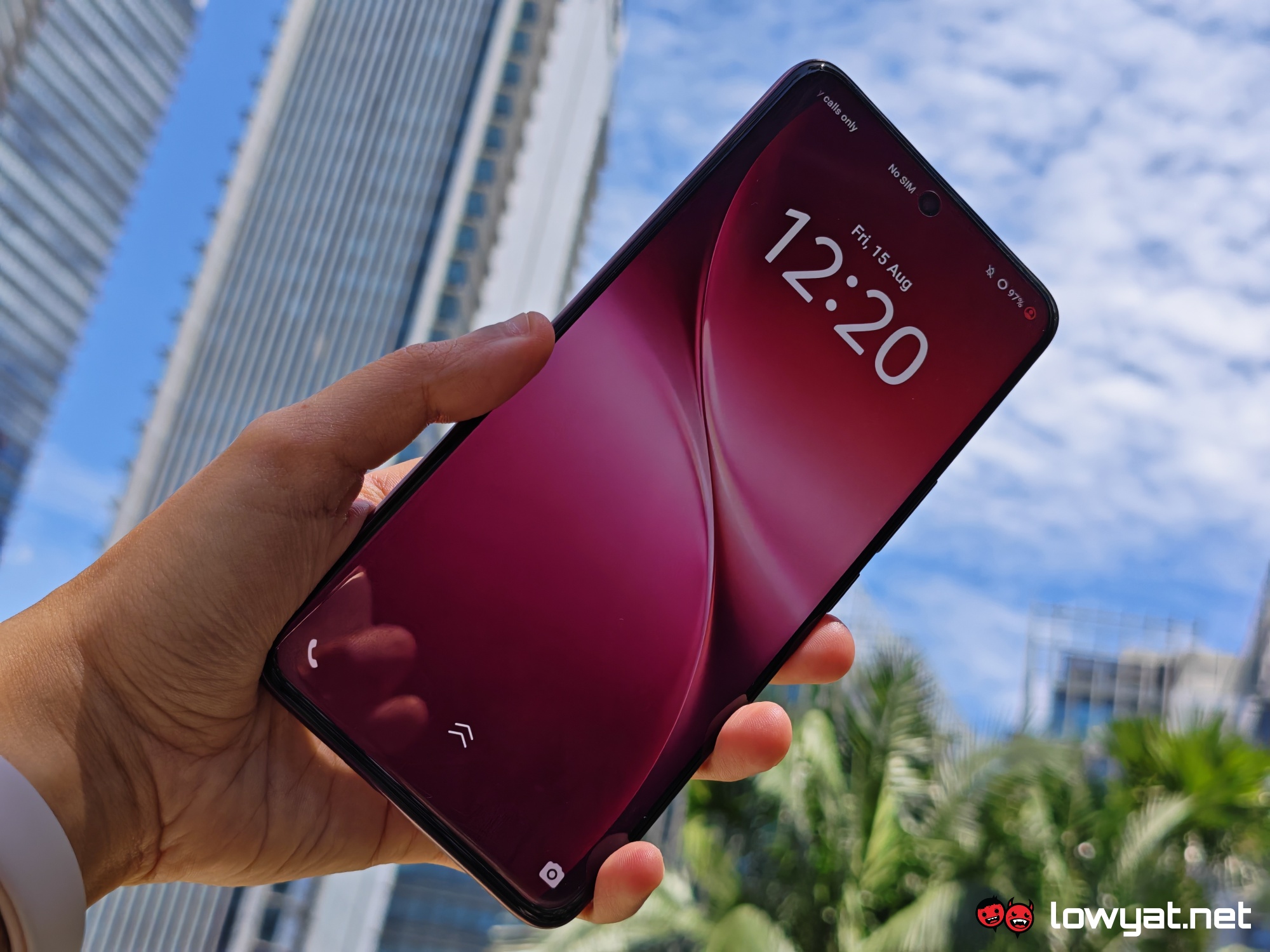
The vivo V60 is a phone that very much embodies the vivo V lineup’s identity. It’s bright and bold, with a heavy focus on aesthetics and photography. As a midrange device, it serves as a functional fashion statement capable of fulfilling your day-to-day needs.
At a starting price of RM1,899 for the 8GB+256GB version, it’s undeniably an upgrade from its predecessor. But even without comparing it to the last generation, the V60 is a worthwhile purchase on its own.
Photography by Nurul Kamil.

